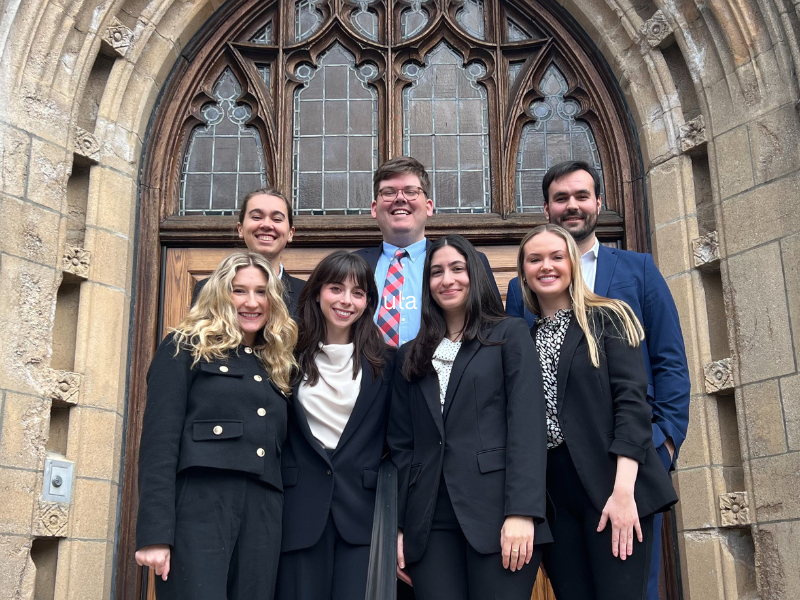Tulane Law moot court team places on international stage, heads to The Hague
Tulane’s International Criminal Court (ICC) Appellate Moot Court competed recently at the Americas regional round of the International Bar Association’s ICC Moot Court Tournament at the Pace University Elizabeth Haub School of Law and advanced to the international round of the competition to be held in The Hague in June.
The team, comprised of 2Ls Haley Dykstra, Selin Ferhangil, and Emma Luke and 3Ls Clara Lang and Charlotte Markstein, was coached by 3Ls Stephen Privat and Ricky Bordelon. This is the second year in a row qualifying for the international round in the The Hague, after last qualifying in 2017. Lang, Markstein, Privat, and Bordelon all competed on last year’s team.
“We are incredibly proud of the blood, sweat, and tears that this team poured into preparing for this competition, and we know that this team will make Tulane proud at The Hague,” said Moot Court Chief Justice Katie Chong.
The IBA/ICC Moot Court Tournament simulates the proceedings of the International Criminal Court which focuses on the prosecution of the “gravest crimes of concern to the international community,” including war crimes, genocide, and crimes against humanity. This year’s case involves a technological company executive charged with aiding and abetting the inhumane act of gender apartheid. Each year’s problem asks competitors to grapple with the ICC’s jurisprudence regarding jurisdiction, the substantive crimes themselves, and procedural defects in drafting their briefs and presenting their oral arguments. Last year’s team advanced to the quarterfinals and placed 15th among 94 teams globally.
In the Pace competition, Dykstra was awarded Best Victim’s Advocate for her oral argument at the competition advocating for the victims of the gender apartheid regime. In addition, the team’s Prosecution Brief, authored by Ferhangil, won the runner-up award.
The team is excited to represent Tulane Law on the global stage and continue to learn more about how crimes of this nature are adjudicated in an international forum.

